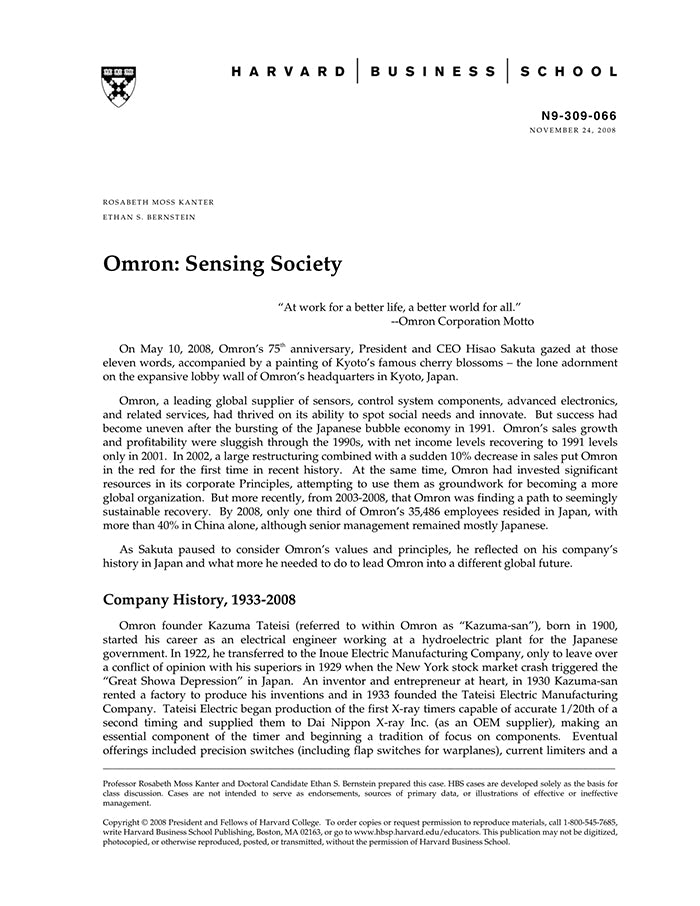Omron: Sensing Society
受取状況を読み込めませんでした
"Leading profitable growth is only part of the goal. We cannot live without breathing, but we do not live in order to take a breath," said Omron's President and CEO, Hisao Sakuta, in 2008. Omron, a $7B global supplier of sensors, control system components, advanced electronics, and related services, had thrived on its ability to spot social needs and innovate. By May 10, 2008 (Omron's 75th Anniversary), Sakuta had led Omron out of a difficult time and into 6 years of consistently strong results, on the foundation of Omron's unique, socially-focused values: "At work for a better life, a better world for all." His goal now was "continuing to lead profitable, globally-distributed growth" in spite of major shifts in Omron's markets: from components to systems; from products to solutions; from standardized to 'mass customized' products; from longer-cycle to shorter-cycle technologies; from home-country dominated innovation to distributed innovation mediated by the center; and from 'quality' meaning producing a quality input for the next step of the value chain to being held responsible for the quality of the final product (end-to-end responsibility). In each case, management believed customers no longer felt that they were just buying a product. Rather, they were buying expectations of Omron's commitment to solving their problems. In part, they were buying Omron's philosophy. And, Sakuta reflected, "As the company grows larger with a larger number of employees on a global scale, people tend to have more tenuous recognition of who Omron is or why Omron exists." On Omron's 75th anniversary, Sakuta celebrated Omron's past, but also recognized that successfully addressing Omron's next challenges involved a further journey along Omron's current path of change. How could Omron maintain the core Principles of the past while making them applicable to the global present and borderless future?
【書誌情報】
ページ数:32ページ
サイズ:A4
商品番号:HBSP-309066
発行日:2008/11/24
登録日:2009/2/23


